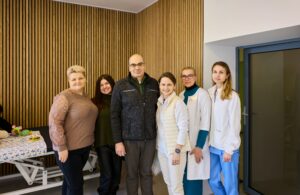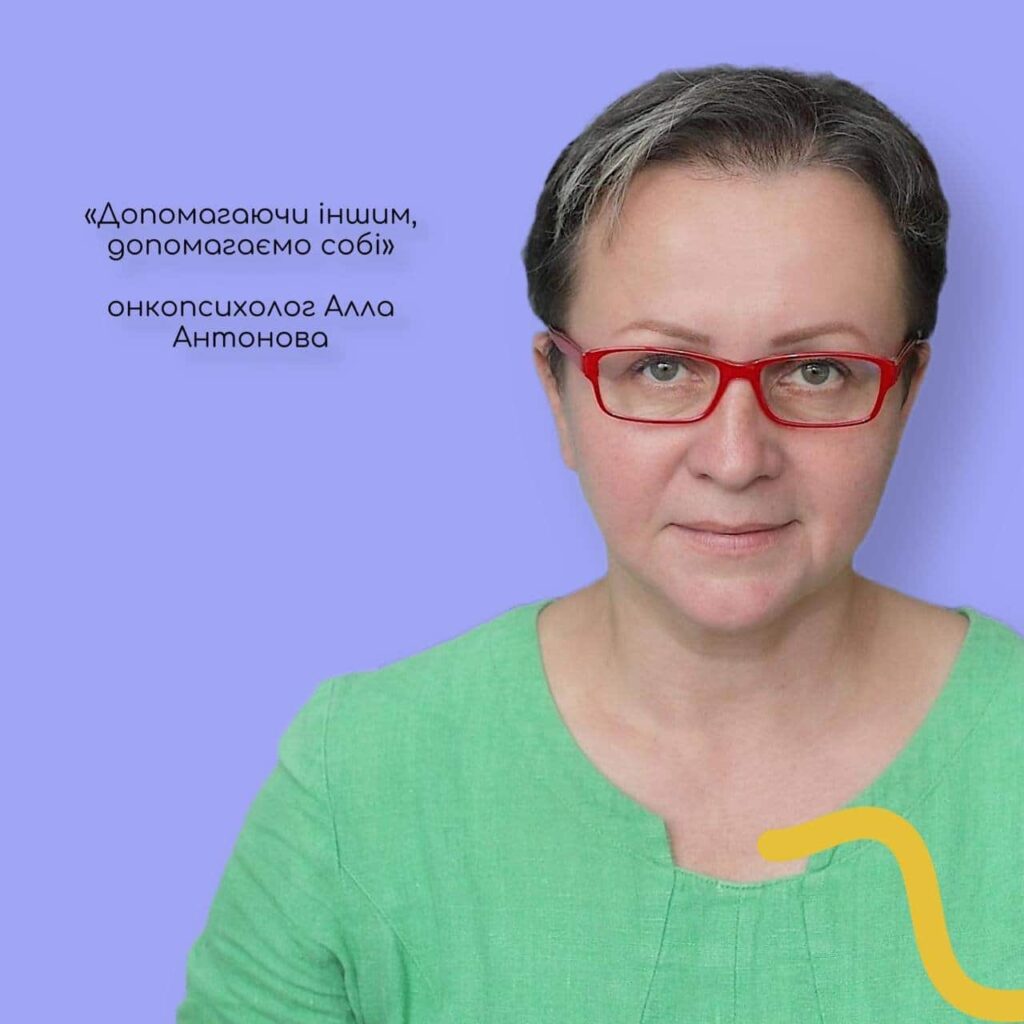


According to doctors' observations, bereavement is associated with increased mortality, in particular cardiovascular disease, in the first months after the loss of a loved one. The incidence of somatic and mental illnesses, infections, and alcohol abuse, as well as the use of medical care and psychotropic drugs, increases.
Childhood cancer is curable, but, unfortunately, not everyone manages to overcome it.
The death of a child means the loss of the future for the person experiencing this terrible grief. Because everything that he or she has lived with so far also dies. All the plans, hopes, dreams, desires... A person seems to be hovering between two worlds: "Before" and "After". "Before" is gone. "After" is not clear when it will happen, what it will be like, and whether it will happen at all. It seems that this pain, sadness, and guilt will last forever. And that this loneliness, which is felt even in the circle of close people, is forever.
It is difficult to cope with all this alone. And even when some people manage to do it, something can "grow" in their souls. The psyche is a delicate thing. Unfortunately, in our society, it is still considered something secondary and not worth paying much attention to. "Time will heal" and "everything will be fine" are all the friendly advice we get.

If it were that simple, support groups for those going through hard times for various reasons would hardly be in demand all over the civilized world. Because it is among those who understand your grief and accept you with all your tears and thoughts that you can feel real relief and find a way into your new life.
That is why we consider what happened on October 9 to be our small (or big?) victory. On that day, our psychologists Alla Antonova and Lilia Syrokha held a support group for people who had lost a child to cancer.
A person does not have to be left alone with their grief - they can go through the entire path of their experience with the help of a professional curator, in a circle of those who understand you as yourself.
Such groups differ from friendship groups in that the curator regulates communication, announces its rules that ensure privacy for its members. After all, friends can cause even more trauma out of ignorance. And the rules make discomfort impossible.
Support groups differ from group psychotherapy in that the moderator, although leading the group from above, does so on an equal footing. In this circle, participants freely share their stories, difficulties, feelings, problems, and thoughts. And they do so when they feel ready.
Such a public agreement relieves pain. And it helps you to understand your own feelings, desires, and your attitude to what happened. The fact that everyone around you listens attentively, does not judge, does not interrupt, and sympathizes with "careful" words that come from the heart brings relief. A person can finally be themselves.
Communication in such groups helps to learn how people cope with their grief in different ways. What hindered them, what helped them. And that there are no templates or such a thing as "adequate/inadequate". Of course, if this does not apply to anything that is harmful to health (alcohol, smoking, drugs).
Usually, only parents participate in such a group, but we decided to strengthen it by inviting siblings. They also experience loss. In addition, they are afraid to touch their relatives unnecessarily and therefore remain silent when it comes to talking about it. We were convinced of this when we started talking to them. The children willingly shared their memories, were open and sincere, and talked about death quite calmly.
The children's group was organized under a program implemented in Ukraine by the Institute of Health Psychology in cooperation with the Bereavement Center of the Aherskus University Hospital (Norway).
At the end of the conversation with the psychologist, the children were asked to create a candlestick in memory of their deceased brother or sister. They took it home to light it when they were sad. You should have seen how lovingly it was created and decorated! It was clear that in this way they wanted to comfort their parents a little bit and at the same time demonstrate their love for the one they had also lost.
While the parents' group lasted all day, the children's group lasted only half a day, after which they returned to their usual games under the supervision of volunteers.
For the parents, it was also their first experience. They hesitated to go or not to go until the last minute, because everyone knew the topic of the meeting. This meant that they would spend the whole day remembering the pain they wanted to forget. However, when it happened, everyone felt a big difference between "hiding the pain" and "letting it go." As the participants later admitted, the latter was indeed a relief.
The psychological group with parents relied on the Arnaldo Pangrazzi* program described in the books Help Me Say Goodbye and The Pain Won't Last Forever.
This was the first meeting of ten scheduled to take place every two months. And while the group is still open to new members for the second and third meetings, starting from the fourth, it becomes closed. This is primarily because the therapeutic power of the circle is due to the creation of a special atmosphere. Safe, trusting, creative.
If you want to become a member of a support group, contact the group leader, a psychologist of our foundation Alla Antonova: 050 446 06 16.
* Arnaldo Pangrazzi is a monk of the Camillian Order, President of the Italian Association of Enneagrams, Professor of the International Theological Institute of Health Care Pastoral Care Camillianum (Rome, Italy).
The Enneagram is a modern typology of personality, according to which each personality type (enneatype) has its own distinctive way of thinking and way of expressing emotions.